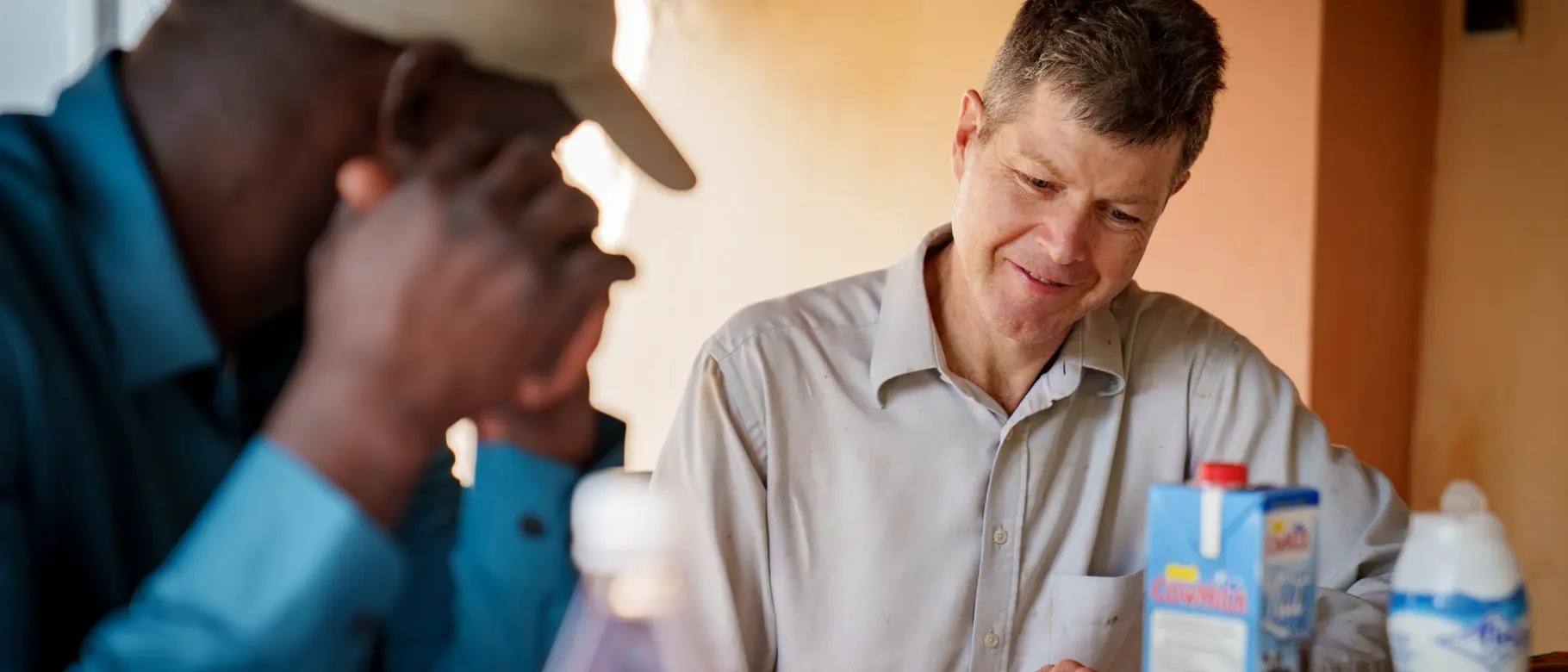
For everything that goes beyond the PCF
Corporate Carbon Footprint
The CO₂ footprint of your entire company. We collect emissions across all areas — easy to work with. Useful for far more than reporting.

The VSME standard is here: sustainability reports specifically for SMEs - modular, feasible and without a consulting marathon. We show you how to get started step by step, what really counts and why early birds have a clear advantage here.
Imagine your biggest customer asks for your CO₂ data tomorrow. Your bank wants to know how sustainably you operate. And the new investor is keenly interested in your ESG performance. Sounds like stress? It doesn't have to be. The VSME standard makes it possible.
The "Voluntary Sustainability Reporting Standard for SMEs" - VSME for short - is something like the little sister of the major EU sustainability directives. While corporations struggle with the CSRD, small and medium-sized enterprises get a tool that actually fits with the VSME. No over-engineering, no 500-page reports. Just exactly what you need.
The EU has understood: Not everyone is Volkswagen. That's why a standard was developed that recognizes the reality of SMEs. And the best thing about it? It is voluntary. You decide when and how you get on board.
In short: any company that is not listed on the stock exchange and has fewer than 250 employees. But it's particularly exciting if you:
You know how it is: What is voluntary today may be standard tomorrow. If you start early, you'll have less stress later.
The VSME works like a clever modular system. You choose what suits you best:
This is where most people start - and for good reason. With around 11 topics, you cover the most important areas: Energy consumption, CO₂ emissions, water use, waste management and social aspects. The great thing is that you probably already have a lot of data in your drawer. No complicated materiality analysis, no consulting marathon. Just the facts on the table.
PAT stands for "Performance, Actions and Targets" - this is where you show where you want to go. This module builds on the basic module and gives your figures a story. You report on your sustainability goals, what you are actually doing and what progress you are making. Perfect if you already have a sustainability strategy and want to showcase it.
Do your customers want to know how sustainable your suppliers are? This module provides the answers. It expands your reporting to include the entire value chain. This module also requires the basic module - so you build up step by step.
The great thing is that you don't have to do everything at once. Start with the basic module, gain experience and expand later as required.
Now it's getting concrete. The VSME wants to know how much CO₂ you emit. It uses the tried-and-tested GHG Protocol csr-tools.com as a guide:
Sounds complicated? It is at first. But here's the good news: you don't have to reinvent the wheel. With the right support, the data chaos quickly turns into a solid balance sheet. And suddenly you not only know where you stand - you can also see where you can make savings.
First of all, take a deep breath: an external audit is not mandatory. Nobody is forcing you to hire an expensive auditor. But - and this is important - your figures must be sound. If the bank asks, you should be able to explain how you arrived at your figures.
Our tip: Document everything properly right from the start. What assumptions have you made? Where does the data come from? This not only makes a professional impression - it also saves time in the event of queries.
Are you wondering whether this really works? Let's take a look at who is already doing it:
ten23 health from Switzerland shows how it's done: the pharmaceutical service provider uses both the basic and the extended module. With clear climate targets and concrete figures, they win over their demanding customers from the pharmaceutical industry.
OREXES GmbH, a German IT consulting company for SAP security, uses the complete VSME standard. Including stakeholder analysis and ambitious climate targets. For an IT company? Absolutely feasible.
Nord Mobil from Croatia proves it: You don't have to be a corporation. The manufacturer of mobile homes focuses on energy efficiency and recycled materials - precisely the topics that are relevant to its business.
Even small consulting firms such as the YouSustain Group from Norway are demonstrating this: With the right approach, the obligation becomes an opportunity to position yourself.
Do you work in agriculture, construction or manufacturing? Then you may be considered "climate-intensive". Don't panic - this is not a punishment, but an opportunity. The VSME expects you to have a transition plan. Show how you intend to reduce your emissions. Don't have a plan yet? Then simply say when you will draw one up.
This is where it gets interesting. The VSME is not a bureaucratic monster, but a door opener:
And best of all: you don't have to do everything at once. Start small and grow with your opportunities.
The VSME standard is still awaiting final approval by the EU Commission. But you don't have to wait. The draft version is ready, the direction is clear. If you get started now, you will be prepared when things get serious.
Sustainability reporting is not rocket science. With the right partner at your side, the compulsory exercise becomes an opportunity. An opportunity to better understand your company, to leverage potential and to position yourself for the future.
The first step? Just get started. The rest will come naturally.
This will also interest you